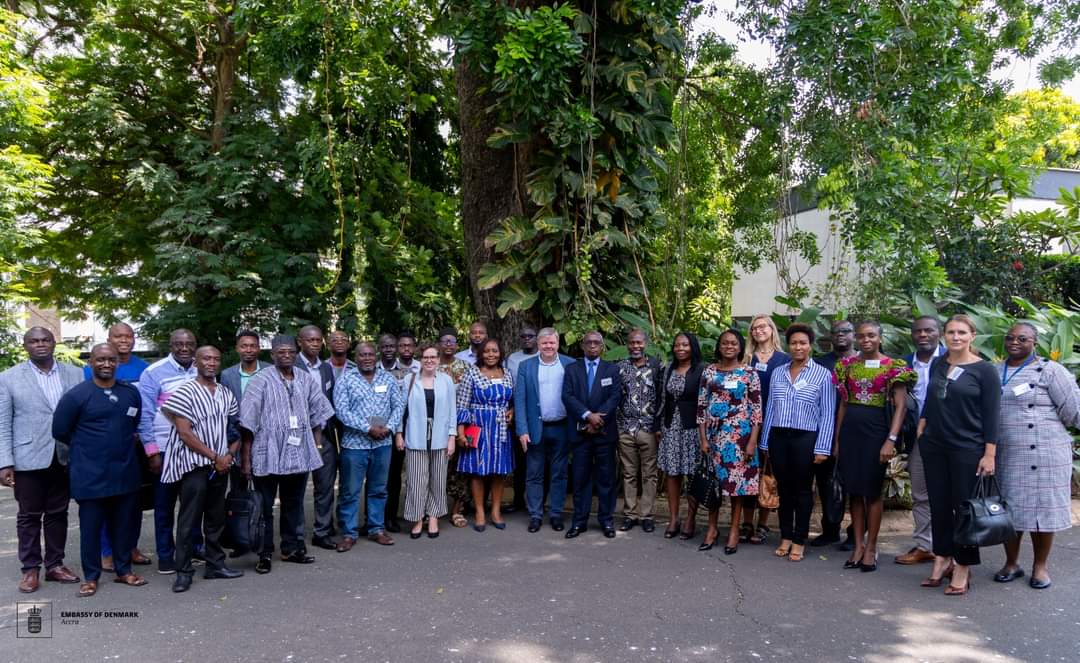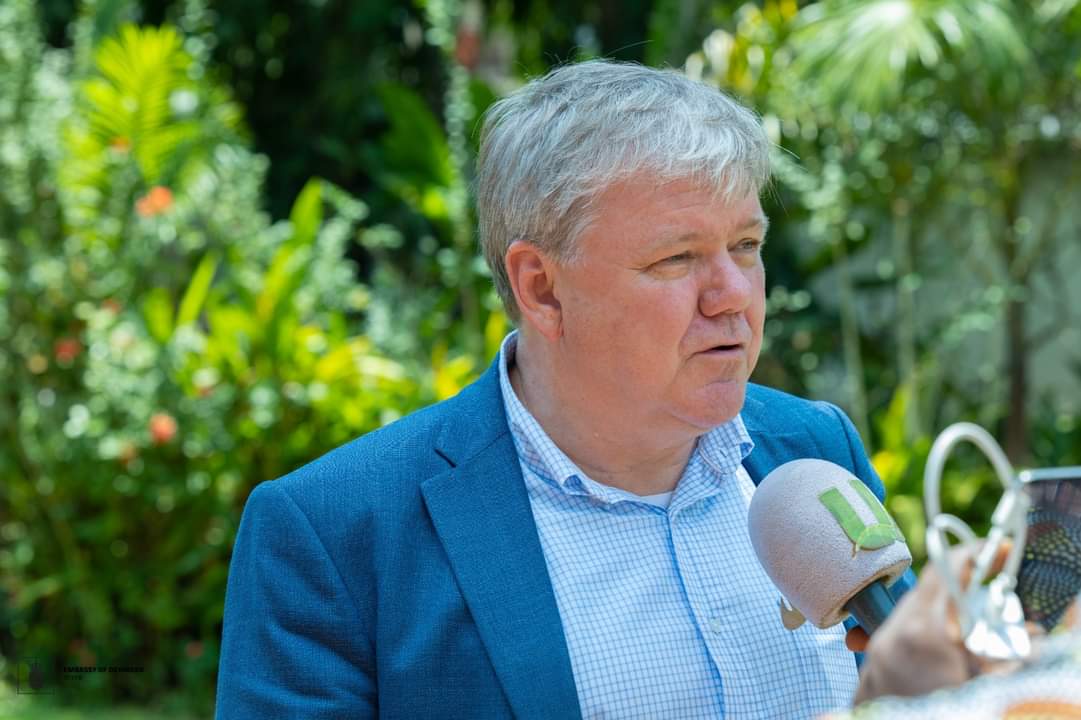
Ghana loses $64.6 billion annually through its food waste, constituting 3.2 million tons of food loss and waste within the value chain.
This was contained in research work done by the Food Law and Policy Clinic (FLPC) at Harvard Law School and the Global Food Bank Network (GFN), based in the United States of America.
However, the country is chasing the International Monetary Fund (IMF) for 3 billion dollars to wean itself from the current economic mess.
Ghana has no deliberate policy in place to address its 3.2 million tons of food loss.
Although the government has constructed some warehouses in districts, these warehouses have no cold storage facilities to accommodate the perishable foodstuff.
This disturbing trend has occasioned the government of Denmark to lead the way in addressing Ghana’s food loss and waste through effective partnerships with Danish companies that are within the food production value chain.

Tom Nørring, the Danish Ambassador to Ghana, Liberia, Sierra Leone, Côte d’Ivoire, Guinea-Conakry and Togo, speaking at a day seminar on food loss in Ghana organized by the Embassy, said it was to help Ghana find a lasting solution to its food loss and waste through a coordinated mutual partnership.
“We need to move away from the usual reports and act now to save the country and its vulnerable population who are severely food insecure,’’ he said.
Per available statistics, 1.3 billion tons of food is wasted globally, and 700,000 tons of food are thrown away in Denmark every year.
In early 2020, the Embassy commissioned a feasibility study to assess the volume of food loss and, importantly, identify the potential value of turning loss into a gain.
In essence, the study looked at the business case of investing in solutions to combat food loss for several value chains in fruits and vegetables.
“In exploring the findings from this feasibility study, we hosted virtual events with Danish and Ghanaian businesses and stakeholders, and this later led to a successful virtual delegation from seven Danish companies in October 2021.
“In 2022, we had the opportunity to officially launch the feasibility report during a Danish-Ghanaian business forum organized as part of a business delegation to Ghana in collaboration with our partners at the Danish Agriculture and Food Council.
“The study showed that there are intriguing business cases for farmers, producers, investors, and stakeholders in the value chains if we apply the right solutions to reduce food loss and instead turn this loss into value.
The aim today, in short, is to move from an action report,” said Tom Nørring.
The Danish food cluster has a strong reputation for everything from primary and processed food production, food technology and ingredients, knowledge, and research, leading to the wide range of high-quality food products available to Danish and international consumers.
Achieving this position and know-how has taken time, and it has taken the efforts of many companies, researchers, and public and private organizations to make the Danish food industry what it is today – Innovative, Strong, and Competitive!
“Standing on the foundation of the feasibility study and all the interactions since 2020, we want to tap into all the corners of the food cluster to form partnerships between Danish and Ghanaian businesses and stakeholders,” said the Ambassador.
The Embassy seeks to form partnerships that aim to tackle the problem of food loss but do it based on sustainable business models that make the partnerships a win-win for all involved – also in the longer term.
“Now you may ask: Why should I change my ways? Solutions are expensive and why should I invest in cold storage or better haulage when I can continue as I do today?” Well, as an example we can look at the area of Ashaiman”, he said.
“Here the report assesses that the value of post-harvest food loss for mango, yam, plantain, garden eggs, and tomato alone is valued at over $16 million annually.
“An investment in solar-powered cold storage for these value chains will result in revenue of over $2 million for solution providers while providing additional revenue to traders worth over $8 million.
“This will make production more efficient for the benefit of the climate, but certainly also for the benefit of farmers and producers who dare to invest.
“To put it short: Yes there is a cost behind investments in food loss solutions. But, it’s just a fact that the cost of doing nothing is even bigger,” he added.
According to the Danish Ambassador, much can be done here with effective blocs and collaborations between Danish and Ghanaian companies.
This move is also seeking to address the UN Sustainable Development Goal agenda 12.3.
Dr. Solomon Gyan Ansah, Director at the Directorate of Crop Services, Ministry of Food and Agriculture (MOFA) speaking at the event said “we can only reduce food losses by ensuring the production and supply of quality seeds to farmers in the country”.
Available statistics from the Ministry of Food and Agriculture (MoFA) revealed that 50% of fruit, 40% of vegetables, and 20% of tubers are lost annually.
Dr. Ansah outlined the major causes of food loss in Ghana, notable among them are poor transportation infrastructure, marketing of agric products, inadequate processing facilities, and financing of agricultural activities.



